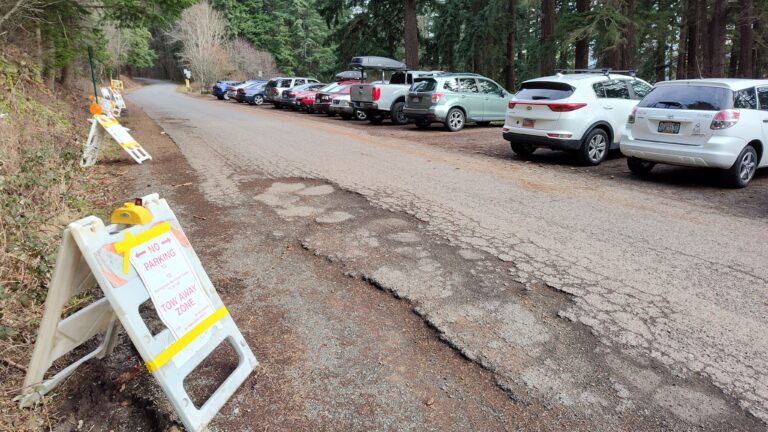The sounds were undeniably gripping, and for some, traumatic: Bystanders in Fairhaven, calling 911 from the scene of the tragic Dec. 16, 2023, Terminal Fire, describing what they saw. That included, presumably, seeing at least one person on the second floor of the burning building — highlighted by all the raw emotion that unfortunately comes with that.
After careful consideration, some minor editing — and, critically, I believe, invaluable context from the city’s fire chief about bold action by Bellingham firefighters — Cascadia Daily News published a story with an audio excerpt from those calls in an exclusive report on Monday, Feb. 26.
The story prompted Bellingham Fire Chief Bill Hewett to describe in more detail the initial stages of battling that fire: We now know firefighters tried to fight their way into a fully engaged inferno as a response to initial reports of people inside. It was another piece of a compelling story of strong local interest — one we will continue to follow through its investigation.
That story, and countless other pieces of hard news produced by CDN, wouldn’t be possible without a functional Washington Public Records Act, which gives us and the general public the right to request and receive documents providing insight into government operations.
Audio from 911 calls is a public record, one that CDN’s reporters requested in the immediate aftermath of the Fairhaven fire. We didn’t receive the files until this week — two and a half months later. Denials and long delays have become the norm — and the antithesis of transparency demanded by the people of this state more than 50 years ago.
Washington’s records act, passed in 1972, has long been considered one of the nation’s strongest, its intent encapsulated in its eloquent preamble:
The people of this state do not yield their sovereignty to the agencies that serve them. The people, in delegating authority, do not give their public servants the right to decide what is good for the people to know and what is not good for them to know. The people insist on remaining informed so that they may maintain control over the instruments that they have created.
A grand notion, that. But the execution is increasingly lacking.
Washington’s records act, designed to err on the side of openness, has been watered down, sullied and trampled upon by special interests who prefer to live in Shadowland. Sadly, that now includes many members of the state Legislature, who have preposterously claimed sweeping “legislative privilege” over their own actions in Olympia.
The records act was launched with appropriate exceptions for release of records that contain personal information about regular citizens; other exemptions exist for legitimate concerns such as medical privacy, proprietary business information and dozens of other concerns.
That list of exception categories has grown, since passage, by 650.
In recent years, attempts to further gut the act have advanced, thanks to an unwitting ally — understaffed local agencies swamped by waves of “nuisance requests” by political pot-stirrers who intentionally tie up staffers for months at a time.
That’s a legitimate concern. But it’s one government at all levels must find a way to handle more effectively than simply denying legitimate records requests made by media and other representatives of the broader public.
Sadly, this is not the norm, as evidenced by the findings of the nonpartisan transparency watchdog group, Washington Coalition for Open Government. WashCOG (disclaimer: its memberships include peers of mine) this week detailed the ongoing erosion of the state records act — and a campaign to combat it — in an alarming report.
It all matters, right here on the banks of the Salish Sea. Reporters at Cascadia Daily News see the effects of open-records backlogs on a frequent basis.
Our journalists are routinely informed that even simple requests for information will take, in the case of recent City of Bellingham inquiries, 20 weeks to deliver after a perfunctory acknowledgment of the request, usually made within the required five days.
In a world where breaking news can enrich or even save lives, that’s a hindrance to what we do on a daily basis.
At CDN, records requests are a vital tool for reporting that reaches below surface levels. Our newsroom team includes journalists with decades of experience in records-based reporting; we expect our entire staff to be well-versed in the mechanics of the craft. We track and follow every single records request we make.
Rhonda Prast, CDN’s managing editor, brings deep experience with records-based reporting from a number of large news organizations. She notes that typical records requests can include government reports, studies, meeting notes, internal communications (including emails, texts, chats and other modern means), employee complaints, injury reports, safety inspections, calendars of officials, surveillance video, detective’s notes, spreadsheets, Google slide or Powerpoint presentations, employee manuals, police reports, phone logs, employee records and campaign contributions.
A review of our work from just two years of publication is rife with examples of public records shining light in dark corners: Records allowed us to report on the safety of a PetroGas facility near Cherry Point; get inside the controversial hazing incident at Sehome High School; and on countless occasions, reveal internal communications between public officials about a broad range of subjects — a critical tool in examining decisions often made behind closed doors of appointed or elected officials.
Records revealed decades of mismanagement, and possible lead poisoning, at a Whatcom County-managed rifle range; numbers and trends in overdoses, accidents and crimes; back stories about the problem-plagued Whatcom County Jail and justice system; details of the controversial slaying of a Skagit County motorist and many other matters.
All of that is threatened by the slide in both application and gaping holes drilled through a besieged public records law.
Know this: Readers can be confident that CDN will lead the charge through any and all doors left open to the inner workings of government by the state records act — and other means. If necessary, we will weigh legal action to get records unduly denied to us, or unreasonably delayed. We’ll also detail examples of such government misbehavior in this space.
Understanding the realities here, we will continue to attempt to work with local records officers to narrow down requested information as much as possible. But we’re not willing to abandon our public watchdog role because of inadequate staffing at local government offices.
It’s your right to know. And it’s your government’s job to figure out how to make that happen.
Ron Judd's column appears weekly; ronjudd@cascadiadaily.com; @roncjudd.





